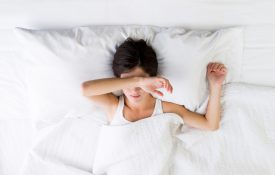-
Are you lonesome tonight? If the answer’s yes, you might sleep badly
The Daily Mail: If you find yourself unable to sleep through the night, there could be a simple explanation: you’re lonely. A study has found that people who feel cut off from their family and Visit Page
-
Brain continues learning while asleep, scientists find
The Telegraph: Even after people have gone to bed for the night their brains can carry on processing information according to the study by researchers at Michigan State University in the US. The findings are Visit Page
-
Let Students Sleep
New York Times: Efforts to improve educational outcomes through extending the school day may have unintended and counterproductive consequences if longer days are implemented by moving the school bell earlier or by pushing more homework Visit Page
-
Children who watch violent or scary content on TV are more likely to have sleep issues
Washington Post: Children ages 3 to 5 who watched violent or scary content on television, or watched TV in the evening, are increasingly likely to have nightmares, trouble falling asleep or other sleep issues, a Visit Page
-

The Science of Sleep: Behavioral Therapy for Insomnia
As the popularity of pharmaceutical sleep aids increases, more insomniacs are turning to their doctors for prescriptions and quick-fix solutions. However, in a talk at the National Institutes of Health (NIH), APS Board Member Richard Visit Page
-
NINR Sleep Research Means Wake-Up Call for Policy
Researchers at the University of Pennsylvania have turned on its head a century of what we thought we knew about sleep loss. Earlier studies had people convinced that they adapted to repeated sleep loss and Visit Page

